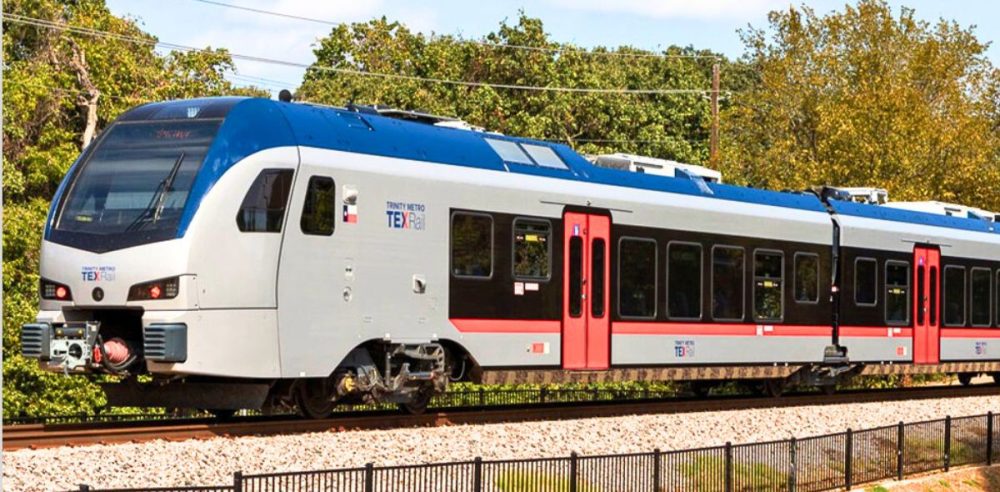As federal funding for North Texas transportation initiatives hangs in the balance, planners are eager to push ahead with ambitious projects designed to enhance the region’s infrastructure.
In the wake of President Donald Trump’s administration attempting to freeze billions in funds, a federal court ruling on February 10 mandated that previously allocated federal money be restored to various agencies. However, many federal agencies are still slow to distribute the funds, leaving numerous planned initiatives in limbo.
These initiatives include critical improvements to Fort Worth roads and the expansion of double-track segments for a bustling commuter rail line aimed at tackling the challenges posed by the region’s rapid growth.
“The Regional Transportation Council, the federally designated planning organization for the Dallas-Fort Worth area, is dedicated to collaborating with local, state, and federal partners to develop transportation solutions that meet the evolving needs of our community while elevating the quality of life for all North Texans,” stated Michael Morris, director of transportation for the North Central Texas Council of Governments, per the Fort Worth Report.
The legal saga intensified when 22 states and Washington, D.C., challenged an Office of Management and Budget memo based on Trump’s executive orders. Although the memo was eventually rescinded, the White House asserted that the original order remained active.
One of the vital projects being discussed is the addition of double-track segments to the Trinity Railway Express (TRE), which connects Fort Worth and Dallas.
This double-track design would enable the rail services to operate more efficiently, a necessity given the surge in ridership, which skyrocketed from over 709,000 in 2021 to more than 1.1 million in 2024.
However, this project is facing opposition from U.S. Rep. Jake Ellzey (R-Waxahachie), who argues that the TRE runs into logistical issues due to its endpoint at the Eddie Bernice Johnson Union Station in Dallas, complicating the proposed high-speed rail line to Arlington.
Another significant development comes from Trinity Metro’s recent success in securing a $25 million grant for the 2.1-mile expansion of the TEXRail commuter line.
This expansion aims to bolster accessibility to the Fort Worth Medical District. It includes new trains and a rail yard expansion, showcasing a commitment to enhancing public transit, reported FWR.
Road safety and accessibility enhancements are also on the agenda, especially near the Naval Air Station Joint Reserve Base Fort Worth. Plans include reconstructing Meandering Road to address poor pavement, adding sidewalks and bike lanes, and proposing a roundabout to improve traffic flow.
The improvement plans for Meandering Road, stretching from the naval station’s entrance to River Oaks Boulevard/State Highway 183, involve its complete reconstruction due to deteriorating pavement and the absence of sidewalks and bike lanes.
A roundabout at the intersection of Meandering and Yale Street and a road extension near Roberts Cut Off Road are proposed. While local officials from Fort Worth, River Oaks, and the base support these upgrades, some residents oppose the roundabout at Yale Street.
Additionally, road improvements on River Oaks/State Highway 183 are planned, targeting about five miles for upgrades. These enhancements involve reconstructing the current four-lane divided road with raised curbs, shared-use paths, and sidewalks, expanding it to six lanes from Interstate 30 to White Settlement Road. A distinct federal grant will also fund soundproofing measures for schools nearby the base.
Fort Worth has also submitted a proposal for the 2025 Rebuilding American Infrastructure with Sustainability and Equity grant to assess improvements on an 8-mile segment of Altamesa Boulevard from Interstate 35W to U.S. Highway 287.
The funding would support feasibility studies, preliminary engineering, and environmental assessments for the corridor. On January 14, the Fort Worth City Council approved a resolution requesting $25 million for the Altamesa project, which is designed to extend from Anglin Drive to Dick Price Road. This extension is part of a broader plan to establish a 40-mile regional corridor benefiting residents of Fort Worth, Forest Hill, Everman, and Kennedale.
Clay Jenkins, the Dallas County judge and chair of the Regional Transportation Council, expressed his support for the project in a letter to the U.S. Department of Transportation in January. He emphasized the urgent need for a dependable and efficient arterial connection in this underserved area, highlighting its potential to close local transportation gaps and offer an alternative route to Interstate 20.
“This project will also advance sustainable infrastructure and promote equity by enhancing mobility and accessibility for communities that have historically faced transportation challenges,” added Jenkins, per FWR.
As federal funds trickle in slowly, North Texas is gearing up for transformative transportation initiatives that promise safer roads and more efficient transit options to meet the region’s growing demands.


